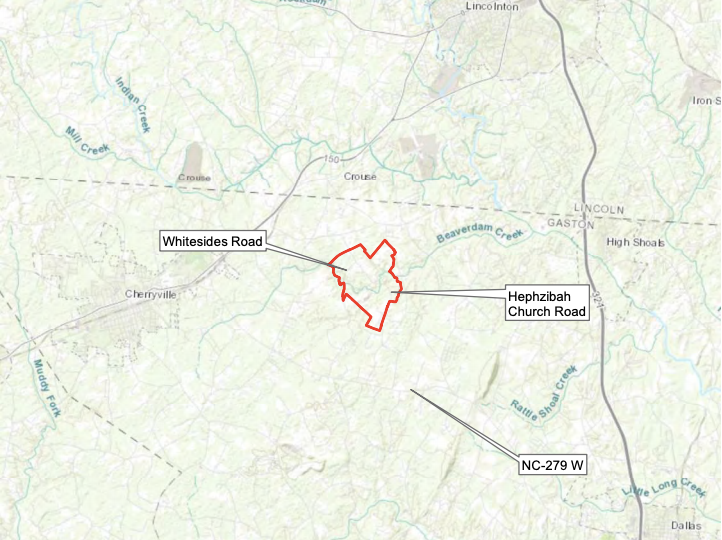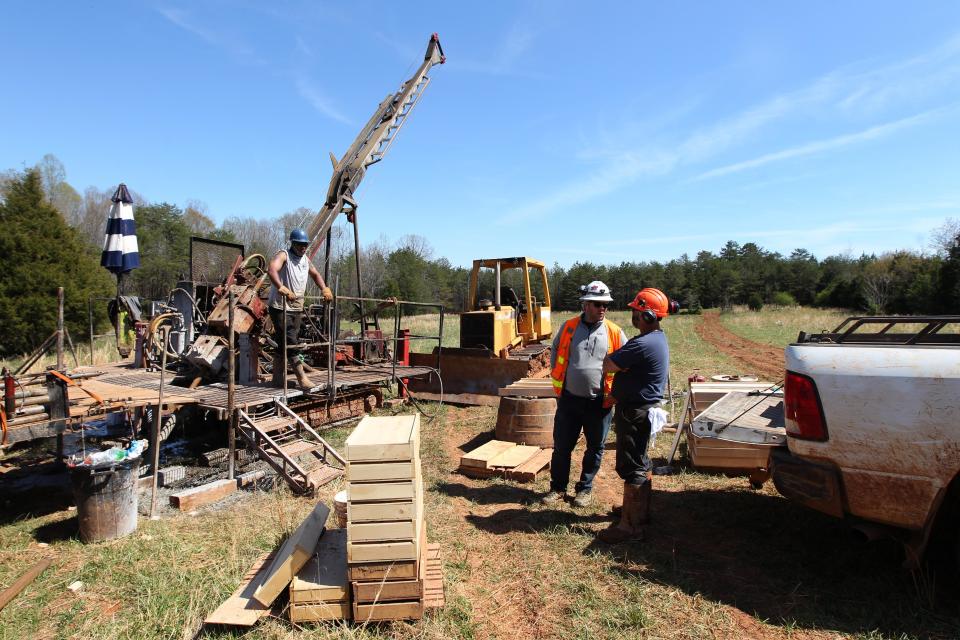Piedmont Lithium says Gaston County is best option, commissioners not sure they agree

Commissioner Tracy Philbeck says Gaston County should do its own study of the impact a proposed lithium mine would have rather than simply accepting as gospel information from Piedmont Lithium.
"I've been around long enough (to know) depending on who does the study, to a great degree can determine what the study says," Philbeck told The Gazette.
"And I just think it would be important to look at what Piedmont would present to us, but also do our own due diligence and homework. We owe our citizens that," he added.

Philbeck was echoing statements he made in a county email in 2021 that was obtained by WCNC Charlotte. In the email, Philbeck wrote,
"As of now, Gaston County gets the hole, the mess, the traffic, the environmental consequences and that is about it."
He still stands by this opinion.
In an interview, he added that Piedmont Lithium has not done enough to address the concerns of county residents.
"I don't think the company has done enough to move the needle on the concerns that our citizens have," Philbeck said. "I think you're looking at air quality, water quality, noise issues, environmental … traffic, congestion, a whole host of issues that I think the company still needs to provide better answers to our citizens."
Commissioner Allen Fraley, in whose township the proposed mine is located, also noted in an internal county email obtained by WCNC Charlotte that Piedmont Lithium seems to consider county approval "a done deal," which it isn't.
Piedmont Lithium, meanwhile, says that if its Gaston County proposal is turned down it will have to look outside the United States for a similar operation.
While Piedmont Lithium has been working to woo the Gaston County Board of Commissioners, who will ultimately have to decide whether to allow the company to establish a mine, the company also says that their back-up plan involves companies that aren't in the United States, said Brian Risinger, vice president of corporate communications and investor relations.
If Gaston County tells Piedmont Lithium no, Risinger said, the company will turn to partnerships with companies in Canada and Ghana that produce spodumene concentrate. (Spodumene is a source of lithium.)
"If this were not to materialize, for us it would mean that we just have options in terms of getting spodumene concentrate via our agreements and relationships with these companies in Canada and in Ghana, and then we could send them to our own processing facility and refine it into lithium hydroxide, and so that may mean building a refining facility in Canada," he said.

If the commissioners turn Piedmont down, the company does not intend to take the county to civil court over it, Risinger said.
"It's a process that's in place, and it's the United States of America. This is how we work. We're a country of laws," he said.
If a mine is established in Gaston County, Piedmont Lithium wants to sell the material it produces to Tesla, which will use it to make batteries for electric cars, as well as other manufacturers.
The company's interest in the area is rooted in the fact that part of Gaston County is sitting atop a treasure trove of lithium.
The property in Gaston County is part of the Carolina tin-spodumene belt, the largest spodumene belt identified in the United States, Risinger said.
Risinger said that there is no other hard rock spodumene belt in the United States that's commercially viable.
The facility the company hopes to build in Gaston County would essentially be a one-stop shop — a place where their material will be mined, then processed, ultimately becoming the product that will be sold to Tesla for electric car batteries.
Piedmont Lithium has applied to the state for a mining permit, and they have not yet received an answer. Should the state approve the permit, the county would have to approve both an industrial rezoning application and, finally, a special use permit.
"When and if that's approved, that in essence is the last stage of the process and we can begin with the proverbial shovel in the ground," Risinger said.
Skepticism isn't the only obstacle the company is facing. Shareholders are currently suing Piedmont Lithium in federal court alleging, in part, that the company failed to disclose that it lacked local support for the proposed lithium project.
The company has denied the allegations.
You can reach Kara Fohner at 704-869-1850 or email her at KFohner@Gannett.com.
This article originally appeared on The Gaston Gazette: Piedmont Lithium says Gaston is best place for mine

